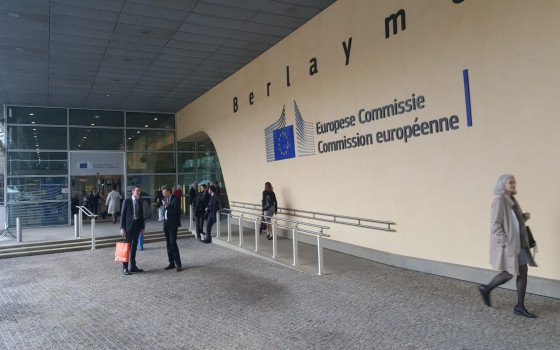
Countries in the European Union are requesting to amend recovery and resilience plans, which include simplifying licensing procedures for renewable energy projects, a national strategy for hydrogen, and promoting sustainable mobility

- Europe and Arabs
- Saturday , 15 July 2023 19:52 PM GMT
Brussels: Europe and the Arabs
Both Austria and Slovenia have made requests to the European Commission to amend their recovery and resilience plans, to which they also want to add REPowerEU chapters.
For Austria The REPowerEU chapter proposed in Austria contains two new reforms. The first reform aims to simplify licensing procedures for renewable energy projects. The second reform relates to the adoption and implementation of a national hydrogen strategy to intensify the production and use of renewable hydrogen. The chapter also includes a new subsidy scheme for "rooftop" solar installations on buildings owned by citizens and not-for-profit organizations, as well as an expansion of investment - already included in the original plan - to buy zero-emission commercial cars and start building recharging infrastructure. To reduce greenhouse gas emissions for road transport. In addition, Austria proposes changes to a number of investments included in the original plan.
Austria's request to amend its plan is based on the need to take into account the high inflation that occurred in 2022 and the effects of supply chain disruptions and increased investment uncertainty in the period 2021-2022. It also follows the upward revision of the maximum RRF grant allocation, from €3.5 billion to €3.75 billion euro. The revision is part of the June 2022 update of the RRF Grant Allocation Key.
Slovenia
The amendment proposed by Slovenia to the plan includes two reforms and four investments to achieve the goals of REPowerEU. The reforms aim to facilitate the deployment of renewable energy, shorten permit procedures, and promote sustainable mobility. The investments aim to accelerate the decarbonization of industry in Slovenia, strengthen the national energy distribution network, and give a boost to sustainable mobility, in both the public and private sectors. Slovenia is also proposing to remove some investments from its plan, such as flood protection measures originally expected. More time is needed to ensure that they are in line with environmental standards. Therefore, Slovenia will fund it with national funds while it is being implemented according to a different schedule.
Slovenia's request to amend its plan is based on the need to take into account the very high inflation it experienced in 2022, as well as the impossibility of implementing certain measures within the originally envisaged timetable due to objective circumstances. The request also reflects the downward revision of the maximum RRF grant allocation to Slovenia, from €1.8 billion to €1.5 billion. The revision is part of the June 2022 update of the key RFA grant allocation and reflects the country's relatively better economic results in 2020 and 2021 than initially projected.
Slovenia also requested a reduction in the amount of loans funded for its plan, from €0.7 billion to €0.55 billion, to reflect the removal of some investments originally included in the plan. In addition, Slovenia has requested that its total share of the Brexit Adjustment Reserve (BAR), of €5 million, be transferred to its Recovery and Resilience Plan. These funds, added to the allocation for REPowerEU grants in Slovenia (€116 million), bring the revised total plan submitted to €2.16 billion.
next steps
The Commission will now assess whether Austria and Slovenia's revised plans meet the evaluation criteria in the RRF regulation. The two assessments are separate for each country.
If the commission's assessments are positive, it will submit proposals for two amended executive decisions to the council to reflect changes to the Slovenian and Austrian plans, respectively. Member states then have to agree to each of the Commission's assessments.












No Comments Found